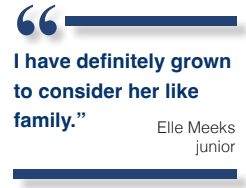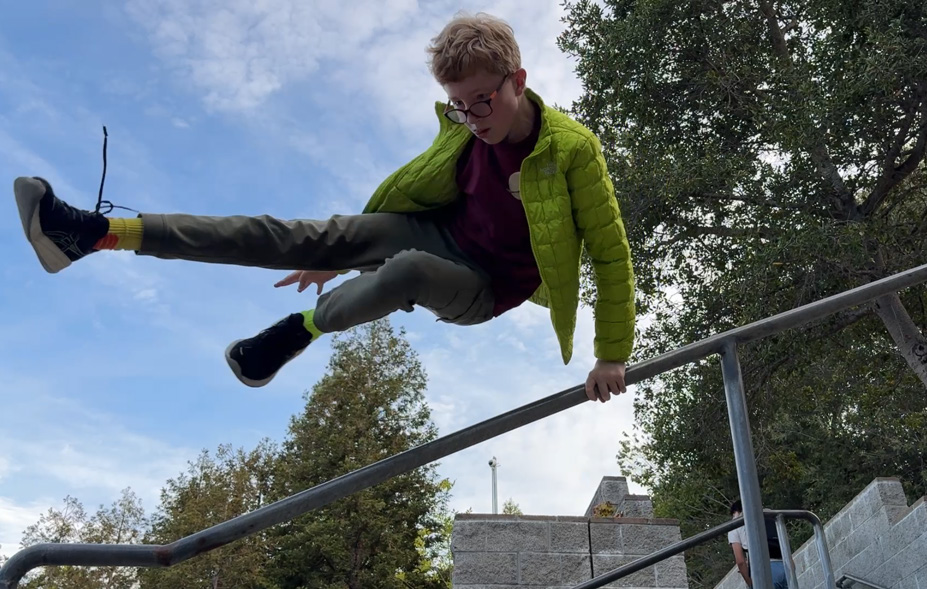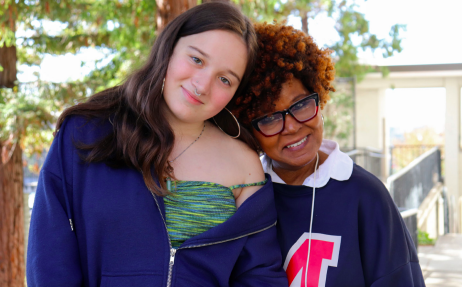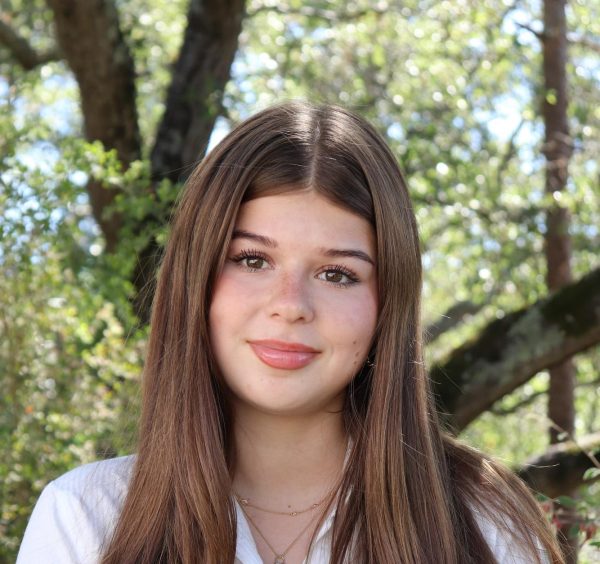In the early morning light, the hallways buzz with anticipation as paraeducators prepare for their day of transforming learning into essential life lessons. These professionals are committed to not just supporting academic growth but also fostering essential life skills and emotional resilience.
Among them is Carole Frascati James who has been a paraeducator for 17 years.
Frascati James said that on a day to day basis she usually arrives at school at 7:30 or 8:00 and leaves when the students leave, depending on the block schedule for the day.
On a daily basis, a paraeducator’s role usually encompasses a range of support methods tailored to student needs.
“We help them as far as reading supports, or breaking down assignments, or emotional and behavioral supports, but the role of a paraeducators differs depending on the age group as there are paras at the elementary level, as well as middle school, and high school,” Frascati James said.
Junior Elle Meeks works and has worked with paraeducator Marla Holt for the past three years.
“I work with Mrs. Holt mainly but overall paraeducators help a lot with work management and are always there for me,” Meeks said. “Ms. Holt is always there to help me, motivates me to do hard assignments, and is there to keep me in check.”
In addition to their daily responsibilities, some paraeducators have a commitment beyond the school year into

summer break.
“Our role isn’t just to work with these students during the school year, we also provide support for the extended school year, which is summer school,” Frascati James said.
Frascati James said this ongoing support includes a focus on teaching practical life skills that can benefit students after high school.
“We have a class called Life Skills to help some of the students. One of the main things we do every week is the students run a coffee cart, and the students go around school, selling coffee to the teachers,” Frascati James said. “This can teach them how to work with the public, how to take orders, how to greet people, and work with the rest of the staff.”
Frascati James said in the Life Skills class students also learn about various things such as how to handle money, cook, do laundry, and take the bus. Sometimes the class will participate in field trips where they learn how to shop at a grocery or hardware store.
“This class really is useful to them, and as a paraeducator our work kind of extends beyond the school itself and we help students beyond just schoolwork,” Frascati James said. “We teach them real life skills that’ll be useful as they go out into the community, either for work or to go on to another school.”
Alongside teaching these practical skills, building supportive relationships with students is an integral aspect of a paraeducators role.
“As a paraeducator we end up growing relationships with the students and being there for them as a person they know they can come to if they have questions or concerns. But a paraeducators role extends to all the students and we are here to help support all students,” Frascati James said.
This foundation of trust often leads to deep, meaningful connection between paraeducators and students.
“Working with Ms. Holt has helped me and I’ve been able to grow really close with her,” Meeks said. “She’s gained a lot of trust in me and I’ve gained a lot of trust in her to the point we keep in touch over the summer, and now I have definitely grown to consider her like family.”
Holt said this commitment to fostering connections and providing support is a goal for all paraeducators.
“It’s imperative that we have paraeducators, because in this day and age autism numbers are rising as well as anxiety and depression especially in school aged children,” Holt said. “So the need for paraeducators is really going to grow and many don’t know that our role transcends just the basic tasks, but our role encompasses many responsibilities like preparing kids for life and after high school.”
This essential focus on preparation and support reflects a shared mission among paraeducators to nurture students’ growth during their critical developmental years.
“As a paraeducator we all hope that we’ve given them a solid foundation and that we’ve helped them to grow and become young adults ready to take on the world as they leave high school,” Frascati James said.






























